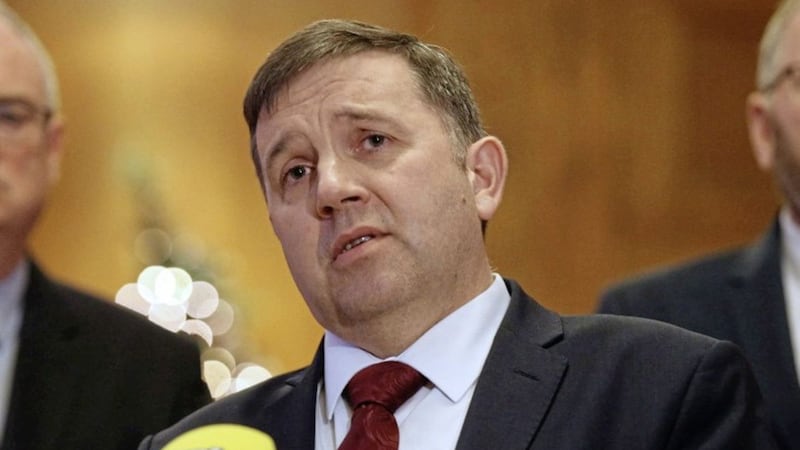According to Queen’s University Belfast, an estimated 40 per cent of unionists who voted in the EU referendum voted remain. I was one of them.
As a group, we have been ignored by the DUP, the British and Irish governments and the Sinn Féin-linked ‘civic nationalist’ campaign, which said unionists as a whole had voted for Brexit and are therefore not worth talking to.
We have also been abandoned by the UUP, which backed remain in 2016 then switched to leave for the Westminster election the following year. It has since shifted to an even more hardline stance than the DUP, in an attempt to blame its larger rival for the backstop.
Despite this pursuit of voters who find the DUP not pro-Brexit enough - the five per cent of unionists who back the TUV, essentially - the UUP has finally tipped its hat again at unionist remainers, comprising the bulk of its natural constituency.
At the UUP’s spring conference last weekend, leader Robin Swann acknowledged party members who backed remain and feel “totally misrepresented”. However, he framed this entirely in terms of the backstop, claiming remainers within the UUP strongly oppose the backstop and “did not vote to leave the United Kingdom”.
He then resumed attacking the DUP, claiming it missed the threat of the backstop in 2017 “despite my warnings”.
This attempt to synthesise the TUV and unionist remain vote has a number of problems, to put it mildly.
First, it is an inaccurate recollection of why the UUP switched to leave. Although it was possible to foresee the backstop argument at the time of the Westminster election, as the EU had just published its negotiating structure, nobody did foresee it. The UUP manifesto made no mention of anything like the backstop and explained the party’s switch purely in terms of “making Brexit work”, on the basis the decision had been made - a view of unionism not dissimilar to the judgment of civic nationalism.
Second, Swann is incorrect to infer that unionist remainers are opposed to the backstop. Polls consistently show over 30 per cent of unionist voters either support or are willing to accept it. Presumably, these are three-quarters of those unionists who voted remain and must include nearly all the 20 to 30 per cent of unionists who still vote UUP.
Swann is right to state unionist remainers are still unionists. However, depending on that to keep them voting UUP is sterile tribalism and extraordinarily dismissive of the party’s electoral hinterland. There must still be huge value in understanding the unionist remain vote, with years of fraught Brexit politics ahead and so much to play for from everyone’s perspective.
At one level, unionists voted remain for the same reasons as other British people - the Queen’s research shows their vote was strongly correlated to being middle-class, socially liberal and positive about immigration.
Admiration for Brussels, now widely expressed by remainers, is unlikely to have been significant. Before the referendum, the EU was a non-issue among mainstream voters.
Concerns about the border and its impact on stability were, in retrospect, amazingly absent. Few unionists live near the border, of course. Even hardline Brexiteers were promising a very soft Brexit, with continued membership of the customs union, single market or both - a point long forgotten. It was presumed there would be time to sort this out. Nobody realised the EU’s negotiating structure would require a frictionless border guarantee before anything else had been agreed, creating the backstop stand-off. Also, nobody realised Stormont was about to collapse. Northern Ireland had rarely felt more stable.
What had unnerved unionists was the 2014 Scottish independence referendum, held seven months before the EU referendum was announced and 15 months before official campaigning began. Scottish nationalists were clear a leave vote would immediately warrant another independence vote. The union had only just survived by the skin of its teeth. Why give it another kick in the shins?
Unionists who voted remain for this reason, and it must have been a predominate reason, were literal unionist remainers, voting to secure the union.
The DUP, by contrast, engaged in almost unbelievably casual and selfish irresponsibility, pursuing a pro-Brexit hobby of recreational British nationalism on the assumption the referendum would be lost and its MPs would return to backbench obscurity. That would be a better critique for the UUP to level at its rival. But doing so would mean conceding Brexit is such a mistake that only something like the backstop can address it.
newton@irishnews.com









